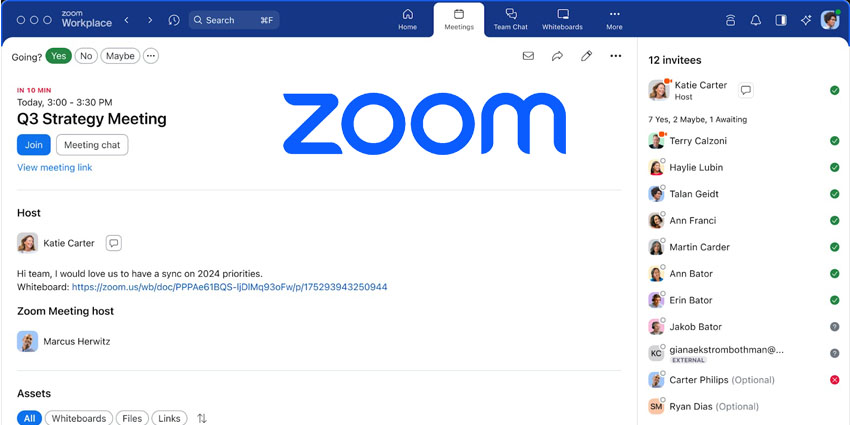Recently the Centers for Disease Control and Prevention suggested remote work could mitigate the risk of contracting COVID-19, also known as coronavirus. These employees would, in theory, have to rely on a video conferencing system to connect them to others.
Video conferencing has always been a key ingredient in the recipe to success for enterprises hoping to connect with customers, remote workers, etc. And now, VCaaS technology finally gets its time to shine, circumstances withstanding. Months after coronavirus emerged as a threat, many video conferencing companies have enacted new work-from-home policies to keep employees safe.
PGi is one such company that wants to reduce the risk of employees across the globe from contracting the virus. According to a company spokesperson, they are focused on reducing the impact the coronavirus has its employees, customers, partners and communities around the world. He shared, PGi’s seen a swell in the number of free sign-ups since January:
“We’ve had up to a 19X surge of free sign-ups in impacted countries like China, Hong Kong, Japan, and Italy, for our freemium service. Over the past week alone, we have seen a double-digit increase in usage with our GlobalMeet platform around the world”
Zoom also added more users in 2020 than it did in all of 2019 according to Berstein Research. The research firm said Zoom added 2.22 million monthly active users in 2020 so far, compared to 1.99 million in all of 2019.
Since the beginning of February, LogMeIn shared with UC Today, it experienced a 20 percent spike in daily usage of GoToMeeting worldwide. Almost double that in Asia, when compared to the month prior.
In further response to COVID-19, LogMeIn told me, governments, educational institutions, healthcare organizations, and non-profits now have access to free ‘Emergency Remote Work Kits‘ for three months. Kits are also available for existing LogMeIn customers, which gives them access GoToMeeting, GoToWebinar, and other tools for their entire fleet of employees at no additional cost.
William MacDonald, Chief Strategy Officer, StarLeaf, said organizations will need to establish a remote work policy, a plan that outlines what’s expected when working outside the office.
StarLeaf research suggests 90 percent of organizations experience some form of a challenge when sharing their screen during video meetings. A third of UK organizations have difficulties when starting video calls due to poor audio, according to the company’s findings. As there is much to be discovered about the new Virus, the situation demands some action from employers, and StarLeaf agrees, sharing:
“Organizations that don’t offer remote work options will have to rethink that approach and need the right policies and processes, underpinned by the right technology”
Audio call quality has also taken a hit, according to number-monitoring experts, Spearline, which found China saw a 7.2 percent drop in audio quality in late January, while South Korea had a noted increase in connection issues and a 12 percent decrease in audio quality in late February. We can expect to see more companies taking to these advanced video conferencing systems in the name of security.
More:
Coronavirus is Causing Tech Event Cancellations







